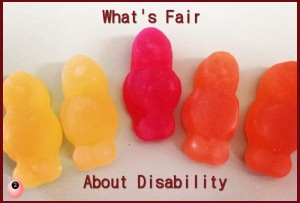Tag Archives: disability

University with a Disability
When my son was diagnosed with Asperger’s Syndrome at aged 10 I never in a million years thought that I would be having to help him think about University. But he has come on so far in that time it really has been amazing. I shall not embarrass him by listing all the things he couldn’t do – I am sure if you are reading this you may already know yourself. But what now? Will he really be able to cope at University? Will he eaten enough, clean himself enough, not get into trouble with other people? Are these not the thoughts of any teenager about to fly the nest – is he really any different anymore?
The following information are things that I have gathered about disability in relation to my son with Asperger’s syndrome; there may be relevant information and links for other disabilities but obviously there is more to think about and this post may only be a starting point.
Going to University with Special Needs – UCAS
The first hurdle we are struggling with is UCAS. My husband and I did not go through UCAS when going to University it is our first time dealing with them. Of course communication is the first big issue here. I really am not sure whether our son is not being told the right information or not at all. He is not doing General Studies (timetable clash) and according to him there does not appear to be any way they are making up the fact that he is missing what they are being taught about UCAS forms. UCAS is the Universities and Colleges admissions services – basically he will need to fill out one of their forms saying which Universities he wants to go to. The deadline for UCAS is January 15th 2015 – my son just thinks I am being a pushy organised parent.
UCAS can be done online, and saved and tracked. There’s a 10 digit personal ID number – and this can be shared with people who help fill out the form. Some of the form can also be shared with the student finance company. Tuition fees loan can be borrowed regardless of family income/situation. 5 choices can be made. It costs £12 to apply for one course and £23 for two or more.
This will include a Personal Statement – that is talking about himself, selling himself telling the places why they should pick him to go on their course over anyone else. It has to be a minimum of 1,000 characters This in itself is proving difficult as it is hard to get him to do anything to put on the statement, and also because things are so black and white he does not understand the whole, because I can do x then y. For example, when applying for a job as a lifeguard he put that he could swim a length under water and knew how to deal with children. To him these were the qualities he had to be a lifeguard. They said this wasn’t enough. We then talked about how he was studying science and was therefore good at observing hazards – he did not see how that was related to being a lifeguard because the hazards were not the same.
Universities must make reasonable adjustments to account for the disability. Disclosing the disability can show evidence of character and achievement (see why you should disclose that you have a disability). This may be something like learning the ability to manage money, or that the disabled person has learnt to cook their own meals. This shows determination and using skills to sort things out.
Deciding on a University
The amount paid back each month for a Student Loan will be the same whether the tuition fees are 6,000 as they are 9,000 (a year). Institutions that charge more than 6,000 in tuition fees have to put in place measures to help students from poorer backgrounds. Waivers and Bursaries – if there’s an option then it is better to have the Bursary as it is more likely to be higher and meet the costs of the basic needs. UCAS has a guide on helping disabled students find the right course for them.
Students with Asperger’s are likely more difficulties socially and with life skills. These may include understanding and processing language, sensory issues, diet/fussy eaters, working in groups, struggle with changes to routines, independent study, taking things literally, understanding jokes, and so on. So it is pleasing to hear that several Universities are offering summer schools to help those with Asperger’s adapt (including Birmingham, Bath, Cambridge and Aberystwyth.
Open Days
It is best to attend the Institutions before putting them down on the form. Have a look on their websites for when they are holding their open days. Some will require you to book them in advanced, others you just turn up on the day.
The Course:Selecting the place of study will depend on what you want to study. Check out the league tables to see which are the highest rated, and what others are saying about it. Think about whether future employers will be influenced by the institution choice. Depending on the course some careers are determined by health and have rules called ‘fitness to practice’ set by professional bodies to ensure people can do the job – this does not mean disabled people are automatically ruled out though. Does the course require an admission test to be sat? The disability officer (see below) can help with this. Tutors can provide advice on the course options -what mix of lectures, number of assignments, seminars there are.
The Requirements: Make sure you have enough UCAS points to secure a place, and see what typically they accept. Just because there isn’t enough UCAS points does not mean that a place cannot be obtained. If the offers received are not taken or none are given then students can go through Extra. From February 24th courses with vacancies can be applied for, and the personal statement can be amended. Then if no offers in June then they can go through clearing.
The Location: Is the place near to home. Therefore, all the support of living at home is still available. If moving away think about the accommodation and any additional difficulties that may need extra help.
The Support: Each University will have a student support or Disability Officer. Speak with them to determine what additional help can be provided. They will be able to advise you on whether they could provide support/help/advice to meet needs. This might be just someone to meet with once a week to talk about academic/care/financial needs – so have a think about what it is that needs additional support. If contact is made before the open day then it gives the disability officer a chance to find other disabled students wanting to do the same course, and/or those already on the course to be able to meet up with. I think this also will give an indication as to what level of support the disability officer is likely to provide. This may give an insight into other difficulties that may be incurred that had not been thought of. Social services can also be involved to help with personal care needs.
Financial help for Disabled Students
All students are able to apply for loans for tuition and living costs. On top of this there is the Disabled Students Allowance – The support depends on individual needs and not income. It’s paid on top of other student financial income and does not have to be repaid. This can be up to a maximum of £27, 678 for the academic year 2015-2016 (most students get less). They do not cover disabled costs that would be incurred if not attending the course, or that any student may have. Things covered would include specialist equipment, non-medical helpers, extra helpers, and costs related to the course/disability. Cuts have been proposed for 2015 that DSA will be only be given for specific learning difficulties if their needs are considered complex. It will no longer pay for standard computers for disabled students or note-takers and learning mentors.
The University will also have a hardship fund – for those experiencing financial hardship – one of the examples is if the student is disabled.
Other Sources of help for Disabled Students
This is, of course, lots more to consider such as insurance, helping them become independent (cooking/budget, etc), accommodation etc. If anyone has any support information on going to University then I would really appreciate it – disability or non-disability related. And if you or your child are thinking about it then the very best of luck to them.
This is NOT a sponsored post.

Disability Fairness: What’s Fair about Disability?
Disability fairness: I have been thinking about what does fair mean when it comes to disabilities. A few things have triggered it and really made me stop and question my beliefs and opinions. In the way we access help for those with disabilities, the way we treat those with disabilities, how help for disabilities is funded and whether we should make things fair for those without disabilities.
Disability Fairness fails in the fact that some people can obtain more help than others?
No Disability fairness with a Postcode Lottery
I was reading about the postcode lottery on A Northern Mum’s blog Type One Diabetes Making it Fair for my Warrior, about blood ketone meters being able to save lives for those with Type 1 Diabetes, but yet it depends on where you live as to whether you get one. This is far from fair and I really recommend you read the post for further information on this. This lack of disability fairness can, unfortunately, be extended to many areas such as speech therapists, portage, hospital appointments, operations and so on, due to people’s postcodes. Something ought to be done.
Pupil Premium
I have been surprised by the mixed reaction to the news that I found out that my son was entitled to ‘Pupil Premium.’ First of all I’d like to clarify that the reason he was allocated funding under Pupil Premium was actually nothing to do with his disability. From what I can gather Pupil Premium is money that a school can apply for if a pupil meets certain criteria, to help them if they are at a disadvantage to their peers. One of those criteria is that the pupil has received FREE SCHOOL DINNERS within the last 6 years, and this is how my son qualified. In fact I think it was 5 years ago that the company my husband worked for went into liquidation.
Since then my son has done his GCSE Maths a year early and gained an A* then you can see his fantastic GCSE results here (far from disadvantaged!). Needless to say he is doing his A-levels (at a Grammar school) – Maths, Further Maths, Physics and Chemistry. It is often mentioned how the jump from GCSE is to A-level is huge, even then I would say getting grades A-C are pretty fantastic. Did I mention that he’s at a Grammar school though? This means that his C grade in Chemistry meant he was disadvantaged to his peers and so the school have been able to seek funding. I’m not going to stop my son having any help he can, but already thought it was a ridiculous system and more so when I went for my 4 year old’s Statement of Special Needs Review.
Disability Fairness with Statements of Special Educational needs
There is no disability fairness in the process of obtaining a Statement of Special Educational Needs – whether you actually get an assessment, any hours, what hours, what support, how good that support is can be really variable, and not just based on the actual disability/need. Surely all of this should have a better system in place; something that makes it fair to all those who need it, no matter where they live.
I have previously mentioned how very supportive my youngest’s son school have been. I am really impressed with his progress and he can now count to 4 (and sometimes even 5). This progress would not have been possible without his full-time 1:1 support. His Statement of Special Educational Needs only covers 20 hours (the school have put the first and last 10 hours in financially). At the review the inevitable happened and we have lost the support from the Communication and Interaction Team, as he was not diagnosed with Autism.
It also sounds likely that his Statemented hours may be reduced, despite the fact it is apparent he needs full time support (as backed up with the school’s financial support). We have pretty much been told he will not get it (even though they can understand that most of the time (bar 5 minutes here and there) he needs an extra adult with him, as they have said that even the most severe cases do not often receive the full 30 hours! That the school need measurable aids put in place – but he is too severely immature to utilise such measures! So down to funding!
THEN it turns out that there is no criteria that he meets to receive this Pupil Premium – ridiculous! How can a pupil achieving a Grade C in Chemistry A-level (and I should imagine in the top 5% of his academic year cohort) be more entitled to funding than a child in the bottom 5% of his academic cohort. I wish I could take the funding from one child and give it to another. Basically if I want the school to be able to access this extra funding for my son then I should split with my husband and go on benefits?!
He needs this support to help him access the curriculum – as part of Every Child Matters. During the school Christmas Production he was supported with his issues in regards to attention, not lying on the floor, getting up & down off the stage and many others. There were so many of the other parents who seemed to be so proud of my son (with the help of his support worker) – and so it made me even sadder to read of a boy with Autism being excluded from the Christmas performance because they felt he would disrupt the others. This is why it is so important that the Government give these children the help they NEED and DESERVE.
Are Disability Benefits Fair?
Are benefits for the disabled fair, or should income be taken into consideration? Currently disability living allowance for children is non-means tested (I am sure it is the same for PIP but I have had no dealings with this) but the same amount is given (dependent on the “level” of care) no matter what the otherwise financial situation. Surely the amount should be on need – a bit like the Pupil Premium I guess, if someone has a household income that is really high they do not need the extra financial support as much as someone (with exactly the same condition) on a very low wage. I appreciate that there would be too much red tape to implement something like this to make it fair, but this does not mean that it is fair does it.
Treating those with Disabilities Fairly
I heard about how Robert Ethan Saylor was arrested for refusing to leave Westview Cinemas, Frederick, Maryland. After a viewing of Zero Dark Thirty which he wanted to watch it again but did not have a ticket. Three off-duty sheriff deputies from Frederick County, MD, Scott Jewell, Rich Rochford and James Harris, removed him from the theatre in such a way that the autopsy concluded that Ethan would not have died of asphyxia if the officers had not intervened. No-one was charged with Ethan’s death. Find out more and offer support at Justice for Ethan.
This upsets me to the core, not just as a human being but as a parent of a disabled child. They KNEW he had a disability and chose to ignore it. And over what? A cheap cinema ticket. The fact that my son has to grow up in a World where people are not willing to make allowances for his disability, to make life just a tiny bit more fair for him and his life. To accept that Ethan was not deliberately just trying to do wrong, that he simply did not understand, and just wanted to watch the film! I know life isn’t always fair, for anybody, but I do wish, hope, and even pray, that we are knowledgeable and compassionate enough to stop and think, make allowances if needs be, and try and make this a fairer World for all.
Disability Fairness to Others
Sometimes you need to make sure that things are fair for everyone. I have previously written about how it is difficult for Siblings of Special Needs Children it is hard. You (in my opinion) simply can not treat them the same, or if you did then it would not be fair. How is it fair to punish a child who does not know what they are doing is wrong, in the same way that a child who does understand? On the flip side though how is it fair on the child who does know it is wrong to see the child who doesn’t know ‘getting away’ with it?
For me, I feel that it is important that my two children without special needs appreciate the fact that their brothers do indeed do not experience life the way they do. We focus more on rewards for positive acts/achievements rather than punishing for bad (but if they have hurt each other they will still have to say sorry). I especially can see how in an educational setting it is important for both children to feel fairly treated, but I think that awareness is key and different methods of “punishment” are utilised.
What do you think?

Rubbish Parenting – Stop Blaming the Disability
I am sick to the back teeth of every parent who considers their child to have special needs/be disabled (whatever you want to call it) having their parenting called into question. How many people have been told, why not try this course to help manage your child’s behaviour – when they just mean you have rubbish parenting? This seems to happen before, during and after a diagnosis process – in my small experience anyway.
My Experience of being Accused of Being a Rubbish Parent to my Teen with Asperger’s Syndrome
Maybe I’m just insecure, always feeling judged, that we have rubbish parenting, a letter once stated that “the mother fusses too much” when my oldest son’s school were justifying why they do absolutely nothing for my son’s needs. His IEPs always said he should achieve this grade or that – which was no problem for him and didn’t need working on. Trying to get him sorted in extracurricular activity, and socialising they just really refused to help with. It was if they completely ignored the fact that he had any needs – it was easier just to blame my parenting because then they did not need to do anything about it.
Rubbish Parenting stopping him being Independent
The school claim that he just needed to be left alone to do things – this would help make him more independent, my interfering by trying to support him was just hindering this process. “What I do not want to do is get him the placement exclusively on my own, it is important that he contributes to the process, as at the end of the day, when he leaves school, I will not be around!” This is the response we got when we could not find any suitable placements for work experience. He never said but basically implied it was down to rubbish parenting that we had not made him independent enough and that he just expected everyone to do everything for him. “We had a brief look the other lunch time and there seemed to a lot”. No there were a lot of companies that offered to fix computers but not to write computer games – not really the same thing.
The assumption is always just made that my son cannot be bothered, and as a parent I have failed to get him to be anything other than self-entitled. I am really upset that it is suggested that my son is lazy (oh yeah you can see that from his grades can’t you) rather than the fact that he has a diagnosed recognised social communication problem (Aspergers). I did repeatedly go into school and question his ridiculous IEPs – you know what happened? They did social stories. They didn’t work. They got a new SENCo – then they tried Social stories. And if I pushed too much they would make me feel like it was my rubbish parenting – and actually my son was just a normal, lazy teen. But it will always come back to Social Stories being the answer (they never work as he can’t generalise them from one situation to the other).
It isn’t Asperger’s Syndrome it is just the Teenage Years
Maybe they are right, I really don’t know what is teenage behaviour and what is his disability, but I DO know that he is far from lazy. If it is clear to him what he has to do then he does it. Will this ignoring the problem make it go away? Does ignoring cure Aspergers? Will he suddenly know how to communicate socially? But then I do hope they are right, that it is just down to rubbish parenting, because one day he will move out of home, and away from me, and my “fussiness” and everything will be alright! I do want you to come and all agree that it is rubbish parenting that I’m fussing: That I am just not letting my boy grow up. This is normal and what most teenage parents go through. Please tell me I’m fussing.
Because if not, what is the alternative? That my son’s needs are continuously ignored? What will his future hold? Funny as he has done so well lately, and when applying for his first job I was told I should have helped him more!!! Luckily he has been given a second chance with that, and you know what even if it means it is rubbish parenting I am going to help him.






